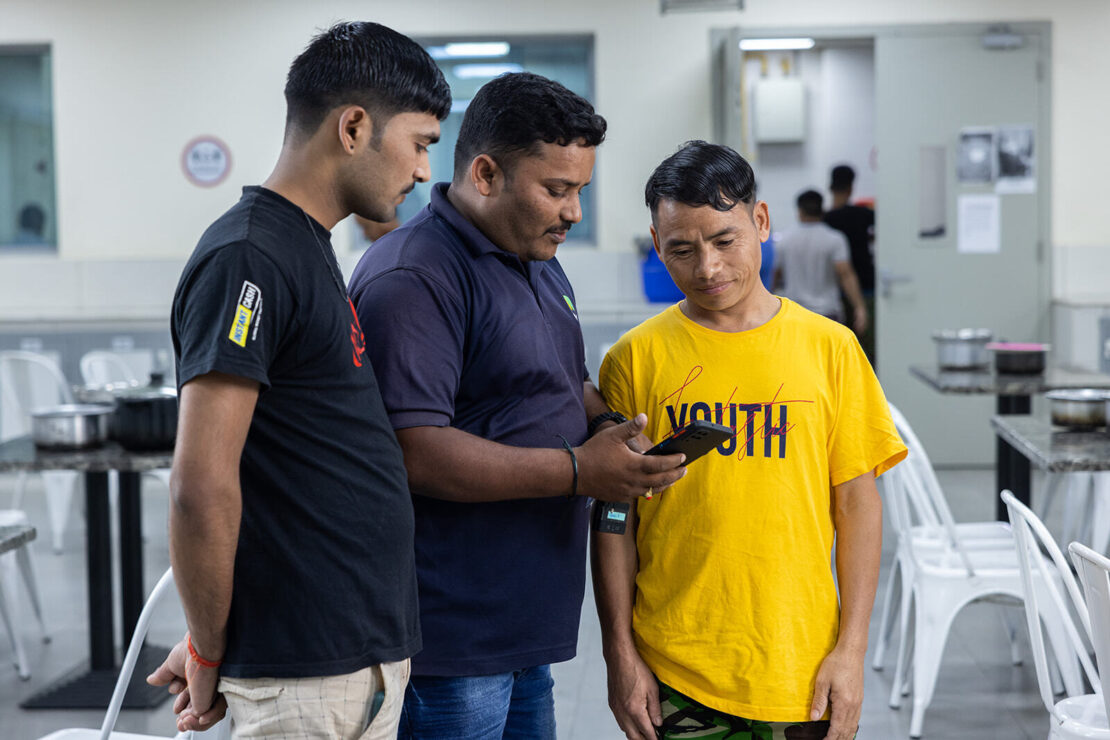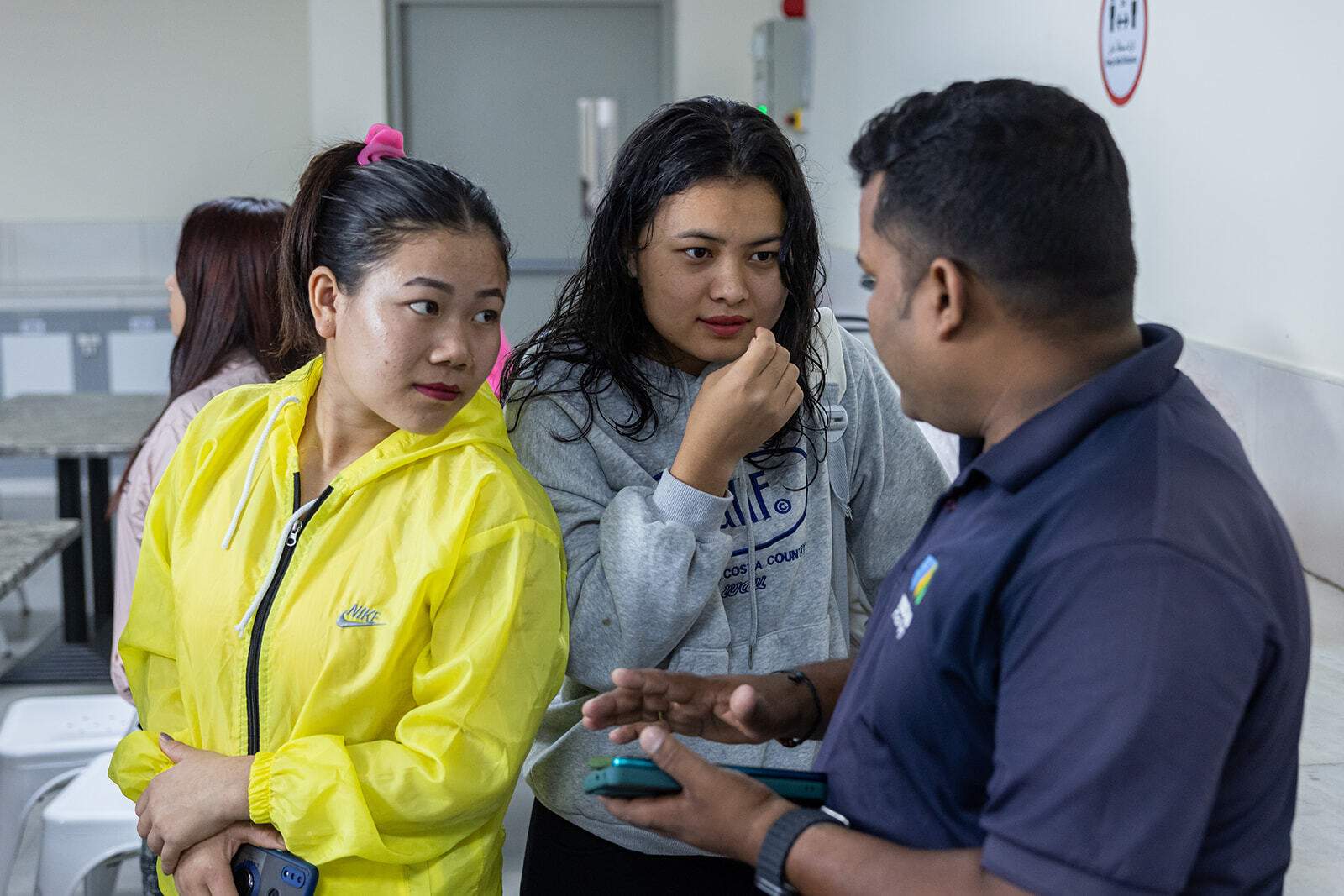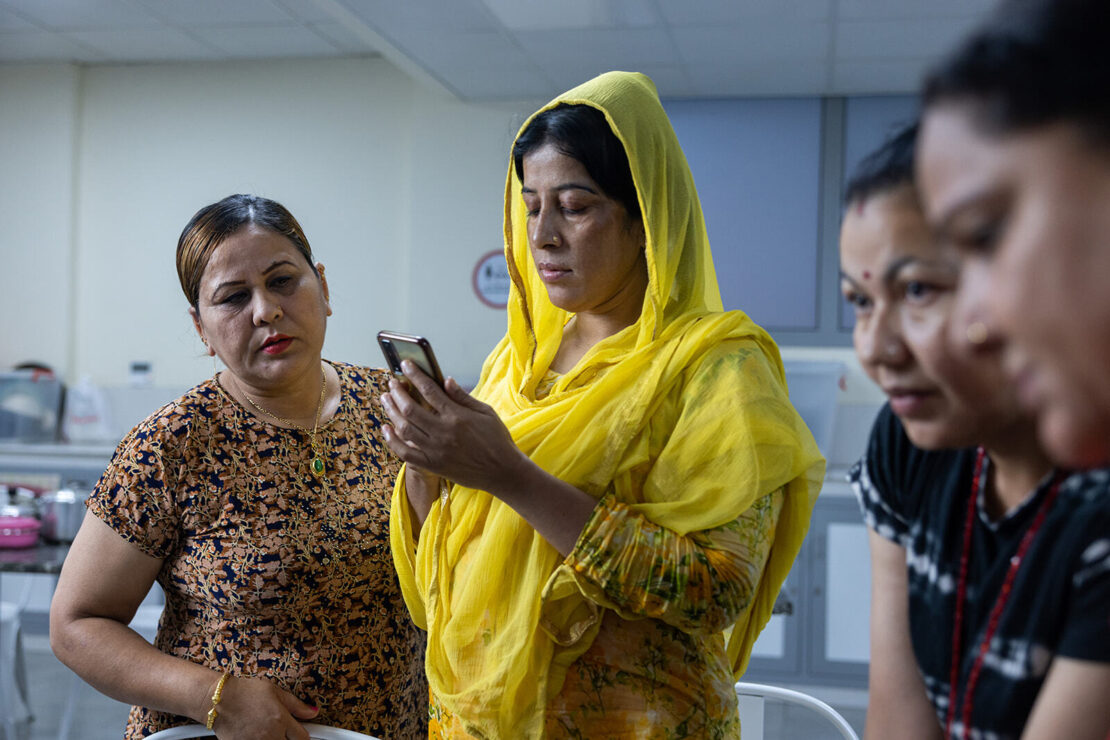Most of us have likely had access to a bank account and education on financial concerns from a very young age. This informs how we manage our money, how we save and what we save for the future. For example, if we want to make a big purchase but don’t have the cash to hand, we may turn to our banks for a loan. Not everyone has the same luxury.
The truth is that financial inclusion is important, and something we take for granted in the developed world. But 1.4 billion adults currently have no access to banking. That’s 17% of people around the world. While some are those who have fallen through the cracks in richer countries, most reside in developing nations.
That said, according to the World Bank, the number of unbanked people is decreasing over time. Meaning more and more people will not only have access to a secure way to store their money, but they’ll also have the ability to accrue interest for their future. Furthermore, they’ll have access to financial advice and support for financial issues. This will leave them less vulnerable to fraud, and give them the mechanisms to make financial decisions that impact their lives in a positive way.
There are clearly a multitude of benefits for the individual who becomes unbanked. But financial inclusion is important for businesses too—and is a net benefit for any developing nation that actively promotes it.

Why Businesses Should Focus on Financial Inclusion
“Poor financial wellbeing impacts health in terms of poor psychological wellbeing, higher stress and anxiety levels, and lower levels of good health. There are hefty organisational costs associated with these outcomes in key areas such as productivity, retention, attendance and engagement” – The Chartered Institute for Personnel and Development
Individuals who don’t have access to banking will invariably not have the support they need to make the right decisions about their money. Even if they are financially literate, they may be forced to make choices that have a negative impact on their finances. And this can affect other aspects of their lives in a negative way, too.
For example, someone may not have the money to pay their rent and bills, putting their welfare and that of their family at risk. Another example is when international workers without bank accounts are subject to extortionate transfer rates when they send money back home, meaning both they and their loved ones have less to use after what may already be a meagre salary.
This can cause anxiety in workers which in turn can affect their concentration in work. Indeed, employees who have money worries are 50% more likely to have mental health issues that affect their work performance.
On the flip side, when workers have a structured way to save as well as the support for better money management, they can make positive, empowering financial decisions for them and their families. This will reduce stress, and have benefits for their employers, too.
- Increased concentration and productivity: An MIT study found that access to more money increased attentiveness and productivity among low-income Indian piece-rate manufacturing workers. Workers who were able to pay off debts and buy household essentials also made fewer costly, unintentional mistakes.
- Higher employee engagement: When workers feel supported by their employers, they are more likely to believe in their company’s purpose and mission. For those unbanked employees, giving them access to a banking solution and financial education will make them understand their value to you, and will be more engaged as a result.
- Better retention rate: Happy employees stay at their companies four times longer than unhappy ones. When financial burdens can cause so much anxiety and stress, it goes to follow that reducing them will lead to an increase in happiness, and a boost in your retention rate.
Why is Financial Inclusion a Net Benefit for a Developing Nation?
Research shows that a low degree of financial inclusion in a nation leads to social exclusion and to less development as a result. But there’s the other side of the coin, when driving financial inclusion can improve economic development within countries. In developing markets, it can increase GDP by up to 14%. In frontier economies such as Kenya, it can boost it by as much as 30%.
But what does having a better economy mean to the country, and everyone, rich or poor, who lives in it?
- Richer countries are less vulnerable to climate disasters. While this is in part due to them demanding better climate security, there is also an “adaptation deficit” where they have the infrastructure and institutions to better deal with such events.
- Richer countries have better healthcare. While stable healthcare systems can still be established in countries with relatively few resources, nations with a higher GDP are more likely to have universal healthcare. In fact, there is an increasing gap between the healthcare in the global north and the global south. Furthermore, countries with more universal healthcare systems have better health outcomes and a lower inequality in life expectancy, too.
- Richer countries have a higher standard of education. In rich countries, 9% of children can’t read with comprehension when they reach the end of primary school. In the world’s poorer countries, the figure jumps to a massive 90%. While many do go on to learn how to read, the fact is, they are already behind. And this impacts their future educational and professional opportunities, which in turn has an effect on the nation’s GDP.
Financial inclusion is one of the first steps towards elevating developing countries both economically and socially. And it’s achievable. Research across 11 emerging and developing economies showed that the vast majority of adults own a mobile phone. Of these, 53% own a smartphone. This means there’s the infrastructure to support financial inclusion. After all, Fintech companies can reach previously underserved communities with digital applications offering the services and support that they can’t get from traditional banking.
Take the UAE as an example. While very much in the developed world, the nation only has a financial inclusion rate of 46 percent. This is perhaps because such a large proportion of the population is international, low-income workers.
NOW Money is the first digital banking solution designed with low-income workers in mind. Not only is it available to people who don’t earn enough to qualify for a traditional account in many UAE banks, it’s also accessible, with services and support in 11 languages. And yet, about two-thirds of unbanked adults said they would need help using a bank account if they opened one. Meaning any country driving financial inclusion forward, developing or developed, needs to educate their people on how to use the services, as well as the nitty gritty of interest rates, taxation, and anything else that impacts their net income.
NOW Money understands that access to digital banking services doesn’t automatically boost financial inclusion. So we provide on-site financial literacy courses for your employees when you enroll them with us. We’ll also give them the financial support they need day-to-day — so they can make better financial decisions and have more opportunities as a result.

Are you ready for a better way to pay your employees?
Find out how NOW Money can add value to your business with flexible payroll and inclusive employee banking solutions.
Arrange a quick call with our team to see how NOW Money can work for you.








